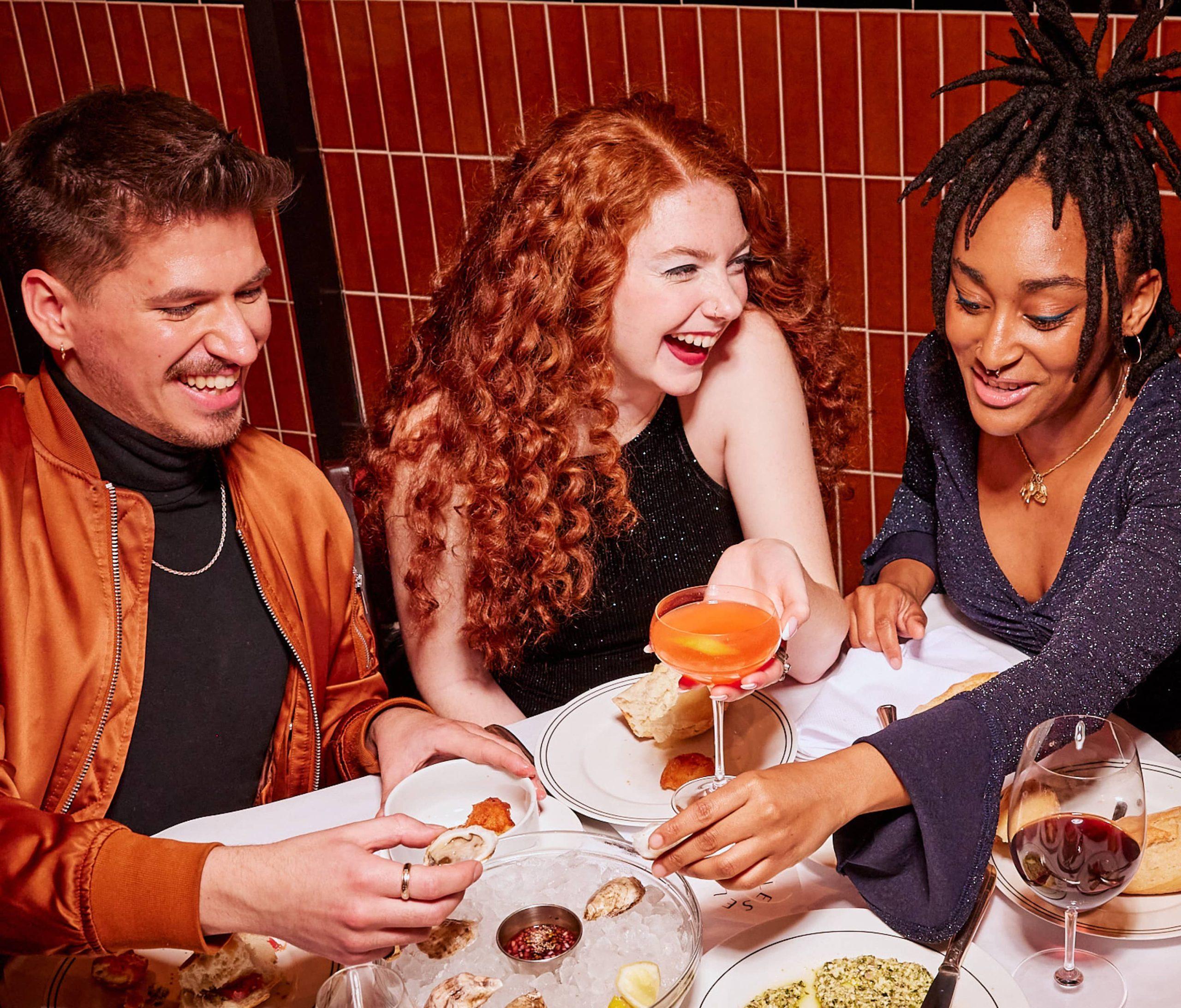OpenTable Experiences are bookable events you can easily customise to showcase your restaurant’s offerings. They help you promote everything from bottomless brunch to chefs tasting menus. You can offer them as prepaid events to generate revenue upfront and streamline service or have guests pay at the restaurant – it’s totally up to you. Best of all, you can set up an Experience in six super simple steps. Let’s start with the basic nuts and bolts of setting up any experience:
1. Start here
When it’s time to set up your Experience, visit your Experiences overview within the “Marketing” section in OpenTable web. Choose “Create” to find a drop-down menu that lists possible types of experiences: Set Menu or Discounted Offer. Pick the option that most closely matches the Experience you’re planning.

2. Name the Experience
You’ll be prompted to give the newly created Experience a title. This will be the first thing people see, so make it attention-grabbing. Choose something short but specific. Instead of ‘set menu’, say what makes it special, such as ‘Italian wine pairing dinner’. Perhaps you’re offering ‘Brunch’ but if it’s a ‘bottomless brunch’ or themed. Say so if this is the case.

3. Write a description
You’ll need to spell out the Experience for guests. This is your chance to sell the event—take advantage of it. Keeping it short and to the point is often best. Don’t forget to add the details guests want to know, such as menu or entertainment information.
If you want to, you can also add tags to the Experience, such as 'tasting menu' or add a seasonal event tag like ‘Afternoon Tea’ or ‘Pre-theatre menu’ that will help guests discover the Experience when they search. Finally, adding photos to show off what you’re offering is another effective way to entice guests.

4. Choose when guests pay and set the price
One of the biggest benefits of Experiences is the ability to choose how you want to charge guests. You can charge guests at the time of booking, which can help with cash flow and reduce no-shows. (You’ll need to activate your Stripe account to accept prepayments.) Start by selecting “Require prepayment at booking” from the drop-down, then customise your price by choosing “Per person” or “Per party.”
With “per person” pricing, for example, you have the flexibility to set different prices for adults and children, allowing you to cater to a diverse range of guests. You can even create up to 20 per-person price options, each with its own title and description.
For “per party” pricing, for example, you can offer a special group-only menu for a single price.
All prices can have their own taxes/fees, and each Experience can have its own set gratuity percentage.
Upfront payment may not be right for every Experience, though, so you can also choose to have guests pay at the restaurant or offer a free Experience.

5. Add photos to bring the Experience to life
Next, you’ll be prompted to add images. Choose up to 10 photos to help guests picture themselves enjoying the Experience. Eye-catching food photography and appealing glimpses of the space where the Experience will take place are most helpful. Click the “Add images” button to select the ones you want to feature.

6. Schedule the Experience
Pick the day or days your Experience will be offered. All Experiences are assigned to shifts, so if you want to host an Experience on a day or time you’re typically closed, you’ll need to change your shift settings first. After your days are selected, you’ll specify during which shifts the experience will be offered. (You can also exclude days from an experience by blocking off days when it won’t be available.)
Now you’re ready to click “Publish” and make your Experience live.

Here are some optional ways to use Experiences and customise them to your needs:
Use Experiences to promote what you're already doing
You can create Experiences that guests don’t need to select during the booking flow to highlight special events or regular happenings. These Experiences function more as announcements that raise awareness of something that will be going on at the restaurant during the guest’s visit, such as a recurring happy hour or a promotion. Guests will see this information with their reservation details under “What you need to know before you go.”
Make the Experience mandatory
This is completely optional, but if you don’t want to offer your a la carte menu while an Experience is happening, you can require all guests to opt for the Experience at specific times. Head to the Experience section on the Availability Planning tab in the admin bar and click “Disable regular reservations'' for the shift and time you desire.
Fine-tune availability
By default, once you’ve created and published your Experience, it will be on all tables across the entire shift it’s been scheduled for. For many restaurants, nothing further needs to be done. But if you want flexibility in how your Experience is offered, you can make the Experience available at select tables and at specific times, a range of times, or several times within the shift. Head to Shift Settings in Availability Planning to adjust these finer details. Click “save and publish” again to make these updates. Setting up an Experience will be intuitive once you get going. However, if snags come up along the way, we’ve got your back. You can also get inspiration from other restaurants who have set up Experiences on OpenTable. Check out the detailed Experiences information on:




